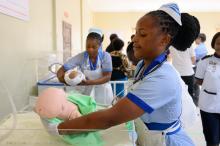Content
Content Header
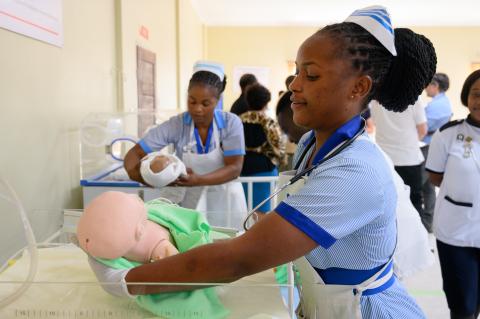
Zambia suffers from a lack of specialised medical staff. SolidarMed therefore supports the training of health personnel.
Content Text
Zambia’s population is growing rapidly. The United Nations estimates that the current population of close to 20 million will more than double by 2050, to 41 million. This represents a huge challenge for the health system. Around 30 percent of the health workers needed are already lacking, and in rural areas this figure is much higher.
Content Keyfacts
Keyfact Item
To enhance the quality of medical training in Zambia through a multidisciplinary and hands-on training system
Keyfact Item
Trainee medical professionals and trainers
Keyfact Item
Creation of three regional training centres for students and a central training centre for trainers to reinforce teaching skills
Keyfact Item
Providing equipment for practical training and digital teaching aids.
Strengthening the teaching skills of trainers. Advising on the creation of organisational structures
Content Media
Content Text
The interplay of theory and practice
SolidarMed trains healthcare professionals in multidisciplinary training centres and is therefore helping to counter the drastic skills shortage. The focus is on practical training and is geared to the four most important healthcare professions in Zambia’s health system: doctors, medical licentiates, clinical officers, nurses and midwives. The decentralised dual training programme allows students to acquire practical clinical knowledge early on and to practise working in interdisciplinary teams. The students then spend the practical part of their training in the affiliated hospitals. The interaction with trainers and the hands-on skills training at patients’ bedsides enhance training quality.
Content Text
Medical Licentiates
Medical licentiates are health professionals who have sufficient expertise to assist in life-threatening situations. For example, they can treat acute malaria or perform a caesarean section without the university-level knowledge of a fully-trained doctor. After completing their training, medical licentiates can also manage a health centre.
Content Media
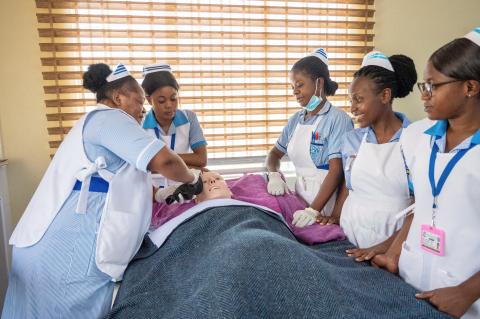
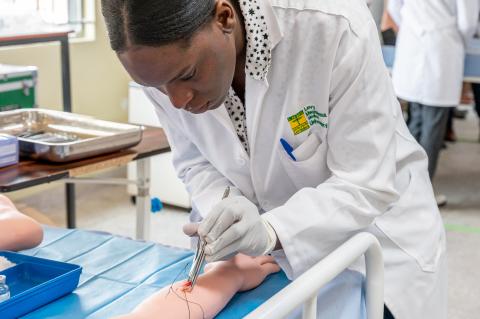
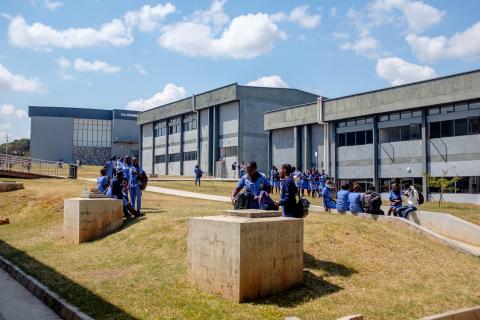
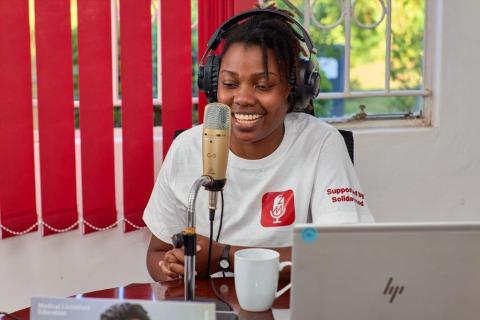
Content Text
Medicine is teamwork
The multidisciplinary training centre at Kafue District Hospital opened in 2022 and is the first of its kind in Zambia. Here, trainees from different health professions can practise working together in what are known as Skills Labs. Four such training centres are to be set up in collaboration with Zambia’s Ministry of Health.
Improving training quality
SolidarMed advises the Ministry of Health and the training institutions on designing cost-effective and innovative courses and vocational training. E-learning methods and classrooms in which students can practise under real-life conditions contribute to the success of the dual training programmes. SolidarMed provides the necessary infrastructure. In the longer term, it is not only the health system that benefits from qualified staff, but also the approximately 10 million people in rural Zambia.
Zitat
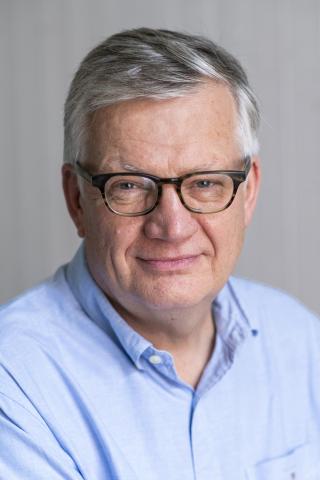
Teaser Spenden
Your support helps ensure that sick and injured people in rural Africa receive appropriate medical care. Thank you so much!
